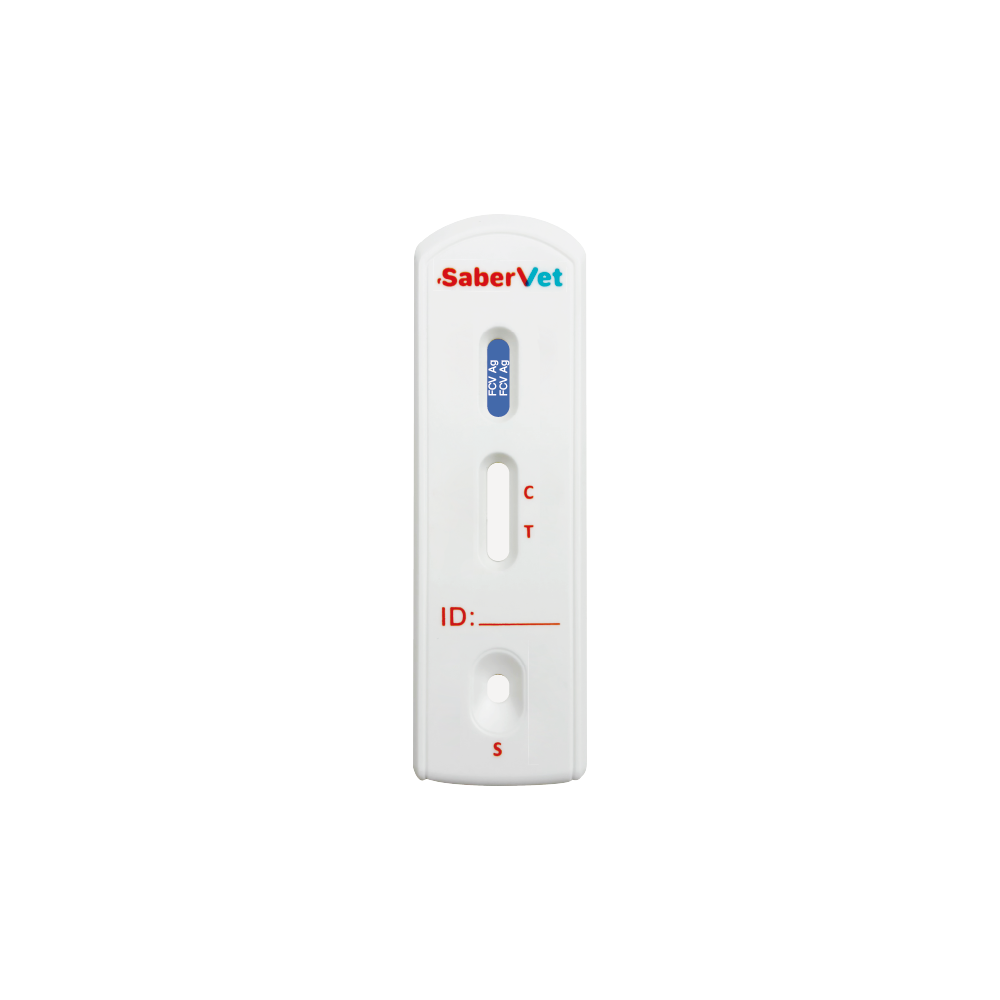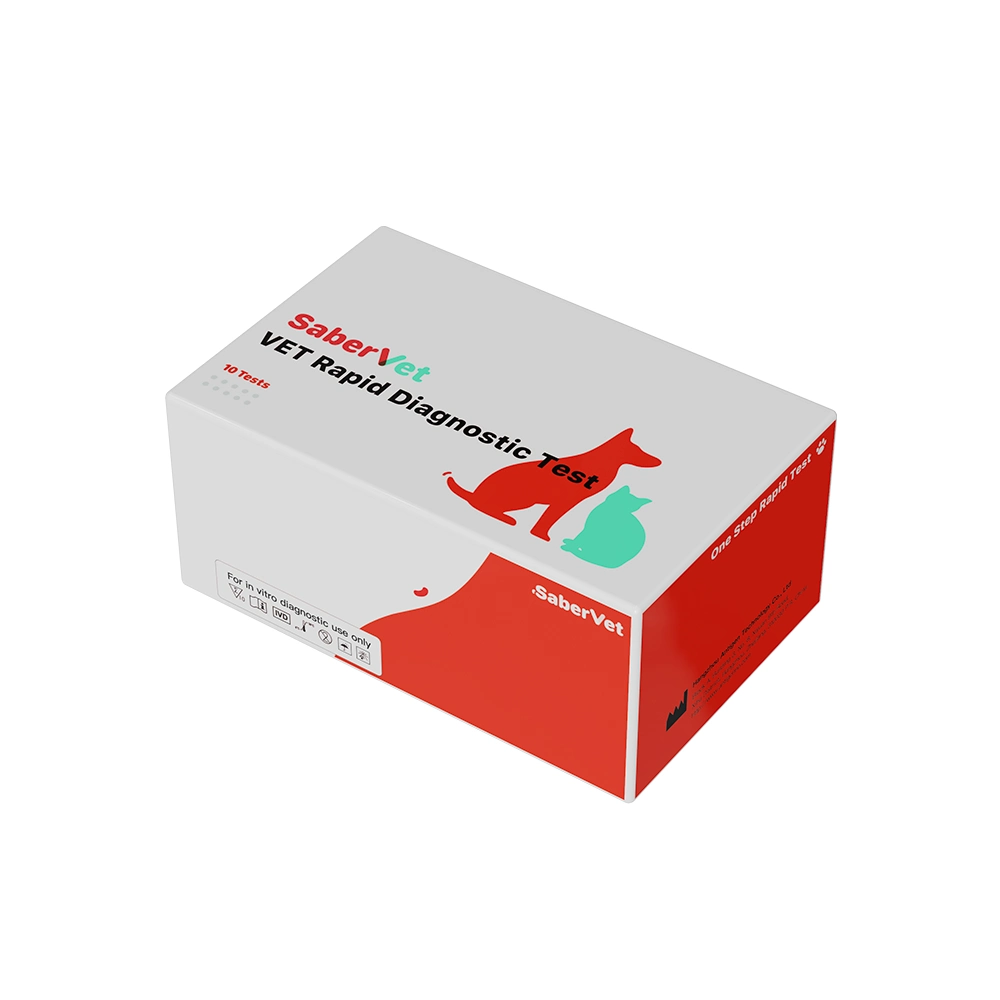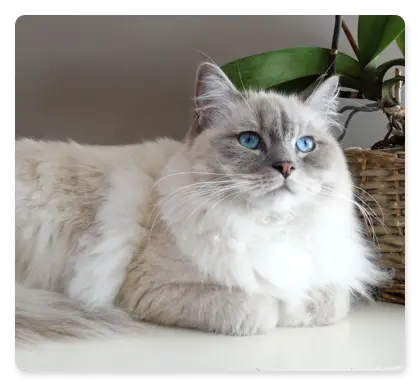Feline calicivirus (FCV) is a common virus that causes upper respiratory tract infections in cats, and it belongs to the family Caliciviridae. Feline calicivirus infections commonly result in Feline Viral Upper Respiratory Tract Disease (FVR), also known as feline rhinotracheitis.
The main veterinary diagnostic test kits for the feline calicivirus include:
Self-assessment method: taking fluid samples from the cat’s eyes, nose, and mouth, treating the samples with a diluent solution, and dropping them into the test card for testing. 10 minutes later, observe the results, reddening of the C line indicates negative, and reddening of both the C line and the T line indicates positive.
Rapid test paper: take the cat’s eye, nose, and respiratory secretion, mix it with diluent, and drop the sample into the test paper, according to the result of the test card and according to the instructions for the results of the control.
PCR test: use the fluorescent PCR method to qualitatively detect the nucleic acid fragments of feline calicivirus (FCV) in oral, nasal or conjunctival swab samples, which is suitable for the auxiliary diagnosis of cats with suspected FCV infection.
PCR examination, fluorescent antibody staining: these methods are also one of the means of detection of feline calicivirus.
Self-purchased FCV test: You can contact Antigenne to purchase Feline Calicivirus test for preliminary testing, and if it shows positive, you should take your cat to the hospital for nucleic acid testing to confirm the Feline Calicivirus diagnosis.
Sample storage of Feline Calicivirus test: If the test cannot be done in time, diluted samples can be stored at 2-8℃ for 24 hours and at -20℃ for 1 month.
The following are some introductions about calicivirus:
1. Parasitic life cycle of feline calicivirus
Virus Characteristics: feline cupripox is an RNA virus whose genetic material is single-stranded RNA. it is mainly transmitted through direct contact with infected cats or contact with surfaces of contaminated objects, such as the cat’s saliva, tears, nasal mucus, etc. It can be transmitted by the use of a single strand of RNA.
2. Symptoms of feline calicivirus
Upper respiratory symptoms: cats infected with feline cupripovirus usually show flu-like symptoms, including sneezing, runny nose, nasal congestion, cough, etc.
Oral Symptoms: Sometimes feline cup virus infection can also lead to oral inflammation, such as mouth ulcers, gingivitis, etc., resulting in bad breath, difficulty in eating and other symptoms.
Eye symptoms: some infected cats may have eye symptoms such as conjunctivitis, red eyes and increased eye droppings.
3. Treatment and prevention of calicivirus
Symptomatic treatment: For flu-like symptoms, some symptomatic treatment measures can be taken, such as keeping the environment clean, providing a warm environment, and replenishing water.
Antiviral medication: For severely infected cats, your veterinarian may recommend antiviral medication to reduce symptoms and speed recovery.
Vaccination: Feline calicivirus is a common cat infection that can be prevented by vaccination. Your veterinarian will develop a vaccination program appropriate for your cat’s age and health.
Environmental hygiene: Keeping the cat’s living environment clean and hygienic, and regularly cleaning the cat’s eating utensils, water bowl, litter box, etc. can reduce the spread of feline cup virus.
Feline calicivirus is a common virus that infects the upper respiratory tract of cats. Symptoms are mild in most cases, but may cause serious complications in young cats or cats with compromised immune systems. Feline calicivirus infections can be effectively managed and prevented through prompt treatment and preventive measures. It is recommended for cats with symptoms such as drooling, sneezing, and mouth or tongue sores.
With six years of industry experience, Antigenne has built a solid foundation of knowledge and expertise in developing efficiently and accurate veterinary rapid test. The creation of Itgen not only reinforces the company’s commitment to quality and innovation but also serves as a testament to its unwavering dedication to improving animal health and welfare. Together, we can make a difference. Contact Antigenne now and let’s unlock the future of animal health.













